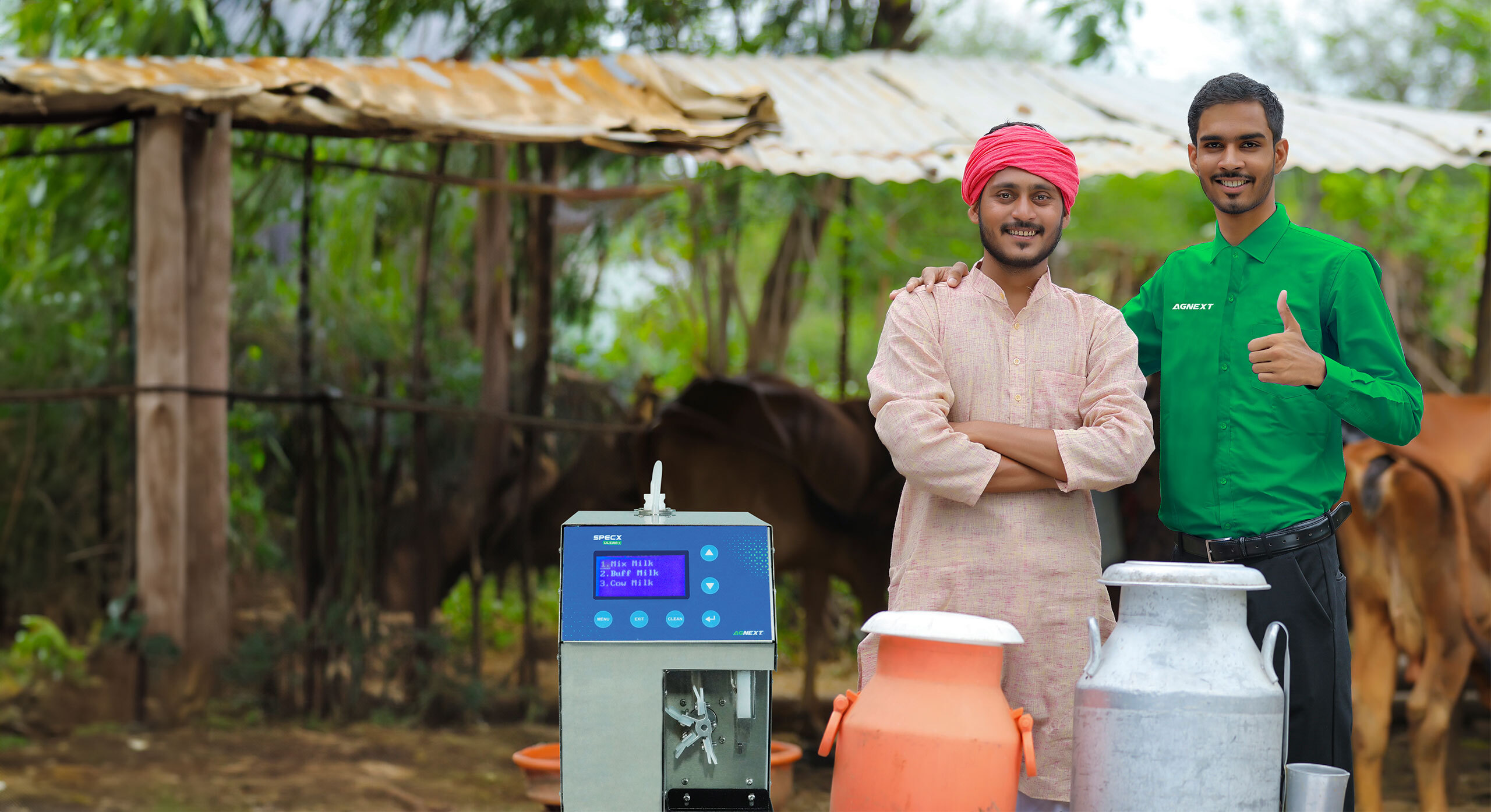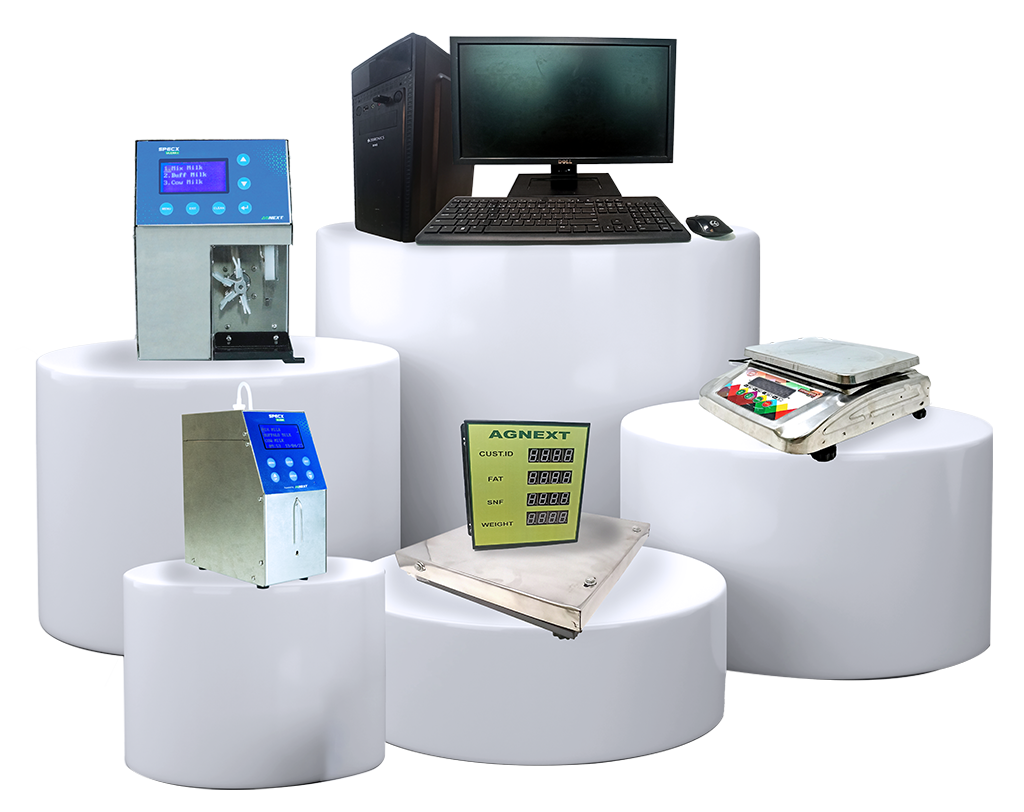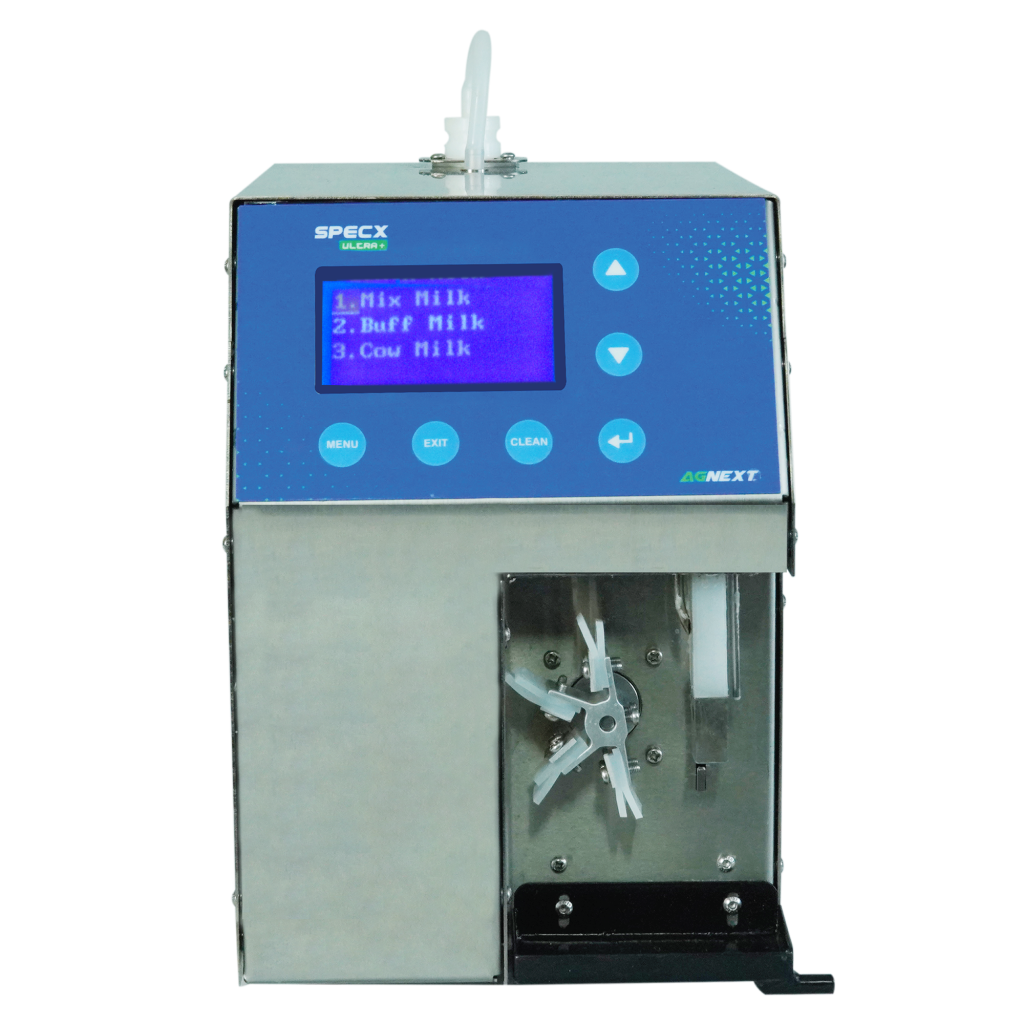Revamping of Milk Supply Chain

The Indian milk industry faces multiple challenges, including low production, inconsistent milk quality, inadequate cold chain infrastructure, adulteration, and limited access to capital and technology. With the potential for transformative change, initiatives such as milk testing, quality control measures, technology integration, and value addition can address these issues and pave the way for a more efficient and sustainable milk industry in India.
Solution
Various methods, including chemical tests and spectroscopic analyses, can be employed to accurately detect milk adulteration. Our SpeX Ultra Plus utilizes an electrochemical approach to identify adulterants such as water, urea, detergents, salts, soda, caustic soda, h2o2, soap, and more. While chemical methods and spectroscopy-based instruments are commonly used in the dairy industry, it is not practical to test every sample individually due to the time-consuming nature of chemical analysis (taking over 30 minutes per sample) and the high cost and limited availability of spectroscopic equipment at all collection centers. However, the SpeX Ultra Plus overcomes this challenge by providing a quick and affordable solution, requiring less than 45 seconds to verify the parameters and adulterants in each milk sample.
AMCU

AMCUs (Automatic Milk Collection Units) are advanced devices that enable farmers to automate the milk collection process. These units consist of digital data logging systems, milk analyzers, and computerized milk weighing scales. By eliminating manual milk handling, AMCUs provide real-time measurements of milk quantity and quality. They enhance transparency in payment processes, reduce human errors, and streamline the overall milk collection procedure. By utilizing AMCUs, milk collection becomes more accurate and efficient, ensuring fair compensation for farmers based on the quality and volume of milk supplied. This discourages adulteration practices and motivates farmers to maintain high milk quality standards.
Our technologies empower producers, processors, and regulatory bodies to make informed decisions, ensuring the quality and safety of milk while driving positive advancements in the Indian milk sector.
Results & Impact
Improved Milk Quality Control
The incorporation of milk analyzers and adulteration tests at different stages of the supply chain enables regular monitoring and control of milk quality. This instills confidence and satisfaction among consumers as it guarantees that only the highest quality milk undergoes processing and reaches them, fostering trust in the product.
Effective Adulteration Detection
The implementation of adulteration testers in the milk industry enables swift and precise identification of adulterants, facilitating efficient enforcement of adulteration laws. This proactive measure significantly reduces adulteration rates, ensuring consumer safety, and upholding the integrity and reputation of the milk sector.
Fair Compensation for Farmers
AMCU system ensures that farmers receive appropriate compensation based on the caliber and volume of their milk, discouraging adulteration practices and incentivizing them to produce high-quality milk. The implementation of AMCUs contributes to the overall improvement of the milk supply chain and strengthens the relationship between farmers and milk processors.
Data-driven Decision Making
The data collected from milk analyzers, adulteration testers, and AMCUs provides valuable insights for analysis and decision-making purposes. This data-driven approach enables the identification of trends, improvement of farming techniques, optimization of milk processing, and addressing supply chain challenges. By leveraging this information, stakeholders can make informed decisions to enhance efficiency, productivity, and sustainability across the milk industry.

Bringing trust, speed & transparency in the agriculture value chain using AI-based food assessment technologies
REACH US
Browse
Menu
Menu
India
Software Tech, Park Of India, Sector 75, Mohali
118-120, Suncity Success Tower, Sector 65, Gurugram
1105, The Landmark, Sector 7, Hiranandani Service Road, Kharghar, Navi Mumbai – 410210
Software Tech, Park Of India, Sector 75, Mohali
118-120, Suncity Success Tower, Sector 65, Gurugram
1105, The Landmark, Sector 7, Hiranandani Service Road, Kharghar, Navi Mumbai – 410210
International
UAE
Switzerland
UAE
Switzerland



